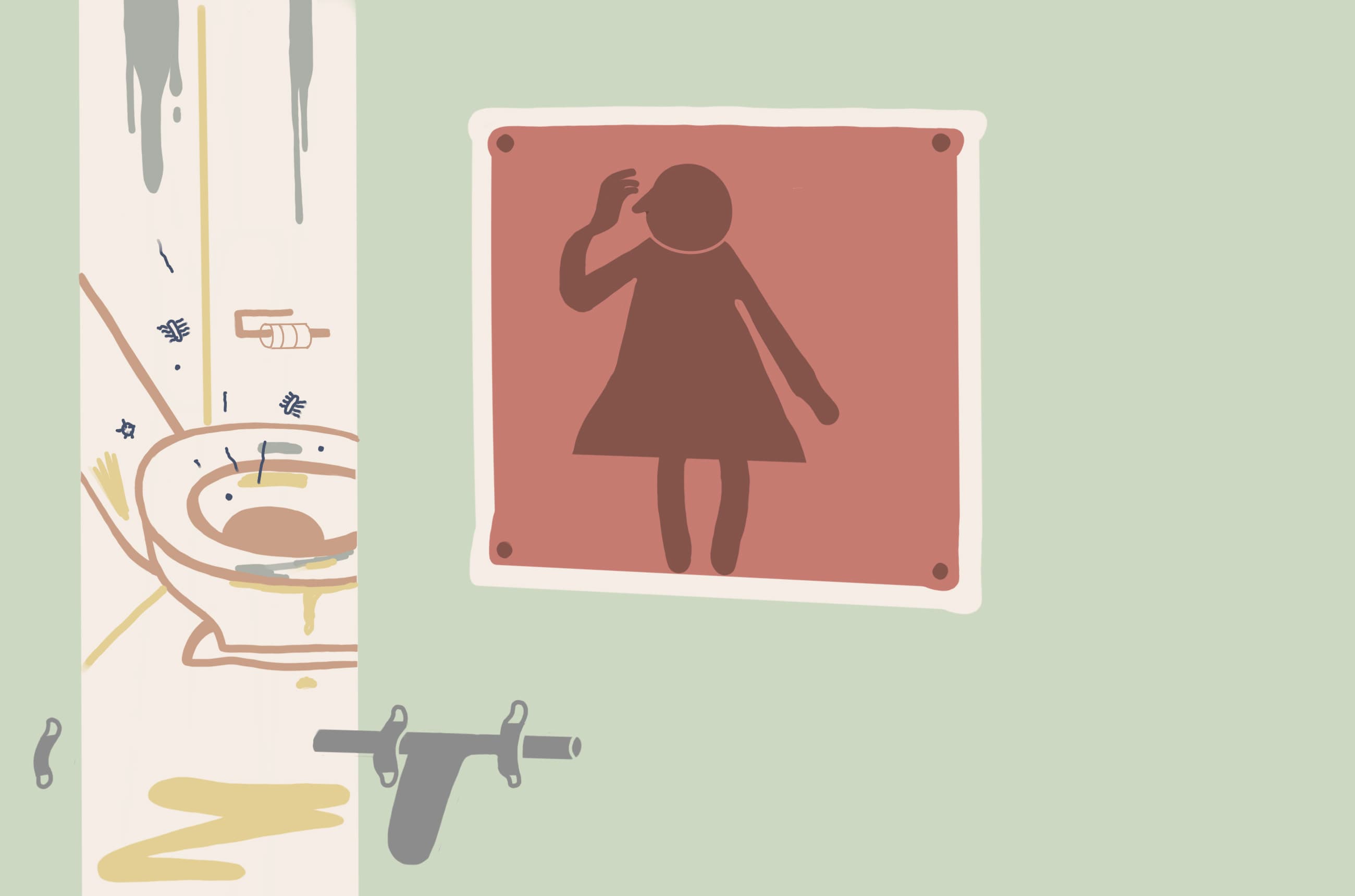The public sanitation system in India is one that has historically been quite poor. The problem is exacerbated both by a lack of facilities as well as unclean public bathrooms, causing them to be a cesspool of bacteria and filth. The humid environments, the lack of clean water, ineffective sanitation systems, etc. all contribute to the lack of basic hygiene that should be maintained. Given the COVID-19 pandemic as well, and its transmission through air droplets, it is more unsafe than ever to access public restrooms. Even on a personal level, a relatively clean looking toilet may host several microbes: you can never be certain of the risks.
Within these spaces as well, a specific disparity may be observed: women have to sit on a toilet seat to urinate, giving them more of a risk for infection than men. Men have long reveled in their gender-specific ability to pee while standing, often anywhere they choose. On the other hand, women choose to hold their pee rather than use these unclean bathrooms, which has health consequences of its own. Holding your pee for too long can cause your bladder muscles to weaken over time. This can cause problems such as incontinence and not being able to fully empty your bladder. It can also cause bacteria to multiply faster and worsen your UTI. There really seems to be no middle ground: risk a UTI (or worse) from holding in your pee. UTIs can cause a burning sensation while peeing, cause a strong, persistent urge to pee, or even appear cloudy due to the presence of blood in it. Given the difference in mode of urination, women are at greater risk for developing UTIs than men. For people with penises, it’s easy to make do behind a bush or a dumpster. For the rest of us: there are STPs (stand-to-pee devices).
Enter PeeSafe and PeeBuddy: Two not very commonly-known products, but ones which have recently gained an uptick in popularity. PeeSafe advertises toilet sanitation sprays, which allow for individuals to merely spray the toilet seat before sitting on it and effectively remove the presence of germs. PeeBuddy, on the other hand, advertises stand-to-pee devices, allowing individuals to, well, stand and pee. These have historically appealed to relatively small, specific consumer bases (within Western contexts most often)- transgender men, people recovering from certain surgeries, etc. In India, there has been rising experimentation with these products, given their benefits of either a clean surface to sit and urinate; or the ability to stand and distance yourself from the unclean surface, or both.
Stand-to-pee devices may be either disposable or reusable. PeeBuddy advertises cardboard, disposable, biodegradable funnel-shaped products, which may be used as an effective means to urinate while standing. Reusable products are usually made of plastic, silicone or latex, which may be cleaned and used multiple times. These products may require a learning curve, and feel alien at first, but once tried, have yielded extremely positive reviews. PeeBuddy is the first female urination device that has been created for the specific purpose of standing while urinating, and is cost-effective as well. It is convenient to carry around, and allows for individuals to access them while travelling, while going on treks, or even provide pregnant women with the ability to pee in a safer manner. For women with arthritis or those who have difficulty squatting, this product is also a boon.
The disadvantages seem to be few: In India, there is a lack of options for female urination devices, and reusable ones don’t seem to be on the market currently. However, one can hope that the popularity of these products continue to grow. While this isn’t a permanent alternative for the demand for clean sanitation, it uniquely allows for greater flexibility rather than no-alternatives.
From avoiding unclean surfaces to giving you the ability to stand, there really is no reason for this to not be the way forward in allowing women to take their personal hygiene within their own control.
Disclaimer : This information is provided for educational purposes and should not be construed as medical advice. Please consult with your healthcare practitioners before undertaking any changes in your diet or adding supplements.
ProactiveForHer is a digital clinic for women, offering accessible, personalized, and confidential health-care solutions. We offer products and services for out-patient health concerns of Indian women, across their lifetime - from puberty to pregnancy to menopause. To know more on the sexual and reproductive health of women, visit https://www.proactiveforher.com/

